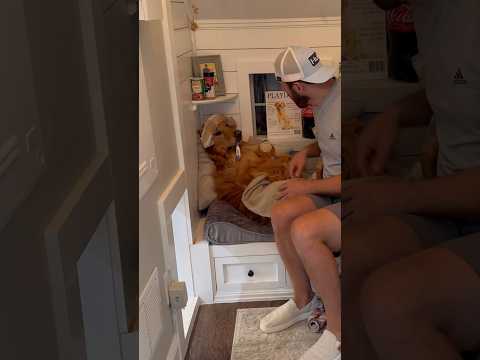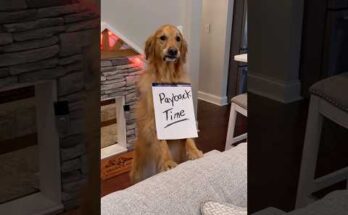My Dog Faked Being Sick!
When Luna first started groaning on the living room floor, barely moving, I panicked. She’d always been energetic, chasing balls, greeting me at the door. But now she lay curled up, one paw slightly lifted, eyes half-closed. My heart sunk—had I overlooked something? A tiny limp? A stomach upset? I rushed through all the usual: checking her paws, offering food, calling the vet. But later that day, Luna bounded around like nothing was wrong. I felt confused, guilty, and a bit fooled.
What I Observed
It became obvious that Luna’s “sickness” only appeared during certain times: when I came home from work, when someone else in the house got attention, or when all the dogs in the neighborhood were getting cuddled on social media. At those times, Luna would groan, lie in odd positions, maybe refuse her dinner. But as soon as treats came out—or when I sat next to her—she perked up. Runny tail, eager eyes, the whole show.
What Experts Say
Turns out I’m not alone. Studies and pet behavior experts suggest dogs can “fake” or exaggerate symptoms, especially when they’ve learned that certain behavior elicits attention, treats, comfort, or avoidance of something unpleasant.
For example, one behaviorist noted that dogs may limping or whining when there’s no clear physical cause; later, when distracted or excited, they walk normal. The consistency with owner presence or attention often plays a role. Also, dogs form associations: if “being sick” means cuddles, less activity, or extra care, they might repeat these behaviors because they’ve been rewarded for them in the past.
My Moment of Realization
My “aha” was when she refused dinner one evening but gobbled up treats from a friend. Another time, I pretended not to notice her “weak paw” and she didn’t limp at all until I called her name. That cracked it for me: Luna was playing to the audience.
What I Did After
-
I checked with the vet to rule out real health issues—pain, infection, anything that needed treatment. Always the first priority.
-
When I confirmed she was medically fine, I tried ignoring the dramatic signs: no worried talking, no extra treats—just calm behavior.
-
I rewarded her when she was normal: wagging tail, eating food, playing, resting calmly.
-
Made sure she got enough attention daily so she wasn’t “starving” emotionally.
What I Learned
Dogs don’t “lie” like humans, but they are smart, perceptive, and learn that certain behaviors get results. Luna “faked” because she knew what worked: my sympathy, comfort, closeness. But once I stopped reinforcing the drama and focused on rewarding wellbeing, the acting faded.
Now Luna is mostly just a healthy pup again. And yes, whenever she groans nowadays, I check—but with a more thoughtful heart.



